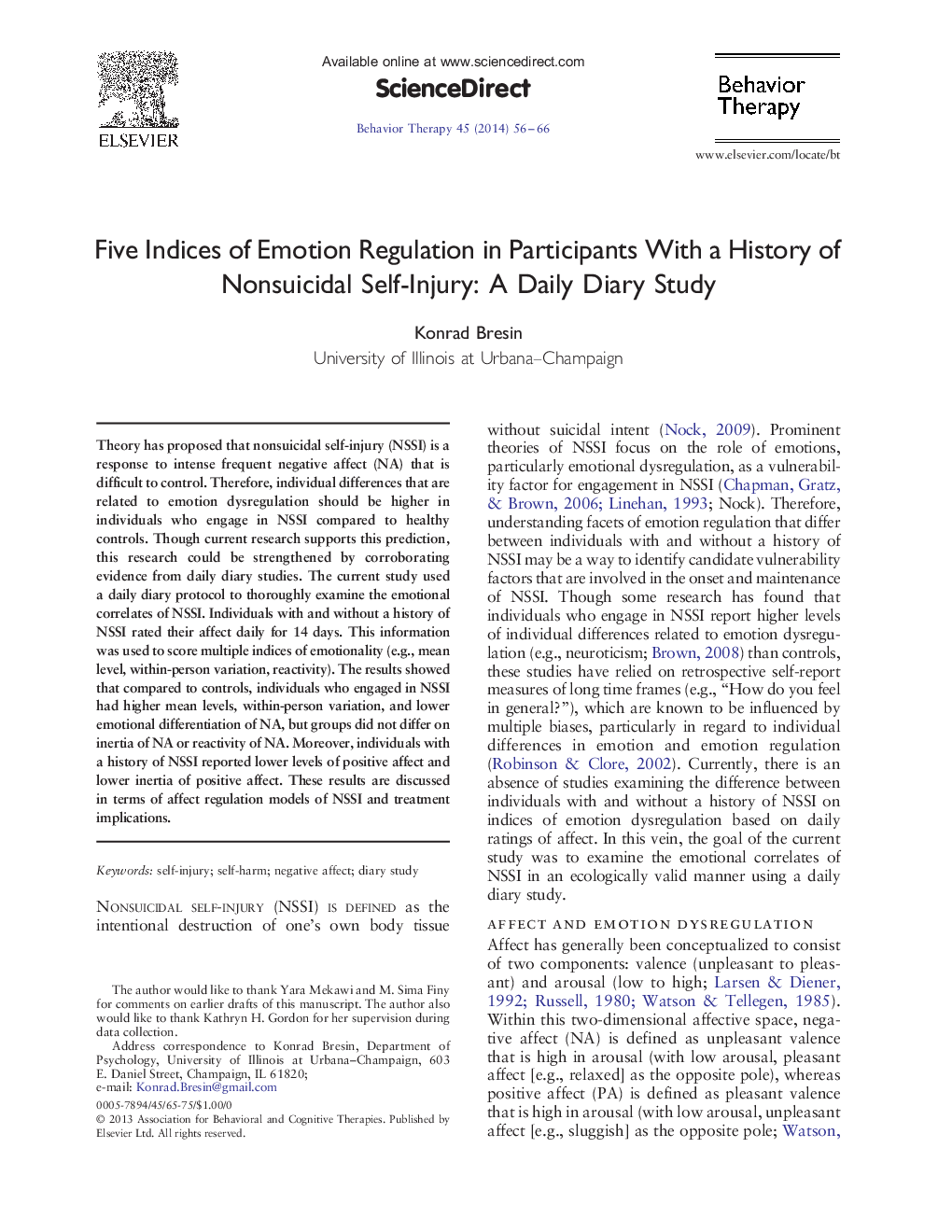| کد مقاله | کد نشریه | سال انتشار | مقاله انگلیسی | نسخه تمام متن |
|---|---|---|---|---|
| 901243 | 915854 | 2014 | 11 صفحه PDF | دانلود رایگان |
• Individuals who engage in NSSI are proposed to be more emotional
• Empirical support has been mixed
• This study examined the emotional correlates of NSSI in response to daily life
• The NSSI group had higher mean level and instability of negative affect
• The NSSI group also had less differentiation of negative affect
Theory has proposed that nonsuicidal self-injury (NSSI) is a response to intense frequent negative affect (NA) that is difficult to control. Therefore, individual differences that are related to emotion dysregulation should be higher in individuals who engage in NSSI compared to healthy controls. Though current research supports this prediction, this research could be strengthened by corroborating evidence from daily diary studies. The current study used a daily diary protocol to thoroughly examine the emotional correlates of NSSI. Individuals with and without a history of NSSI rated their affect daily for 14 days. This information was used to score multiple indices of emotionality (e.g., mean level, within-person variation, reactivity). The results showed that compared to controls, individuals who engaged in NSSI had higher mean levels, within-person variation, and lower emotional differentiation of NA, but groups did not differ on inertia of NA or reactivity of NA. Moreover, individuals with a history of NSSI reported lower levels of positive affect and lower inertia of positive affect. These results are discussed in terms of affect regulation models of NSSI and treatment implications.
Journal: Behavior Therapy - Volume 45, Issue 1, January 2014, Pages 56–66
